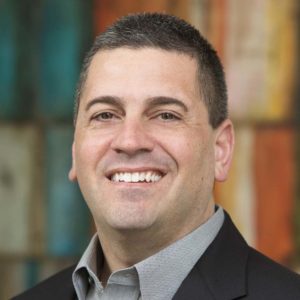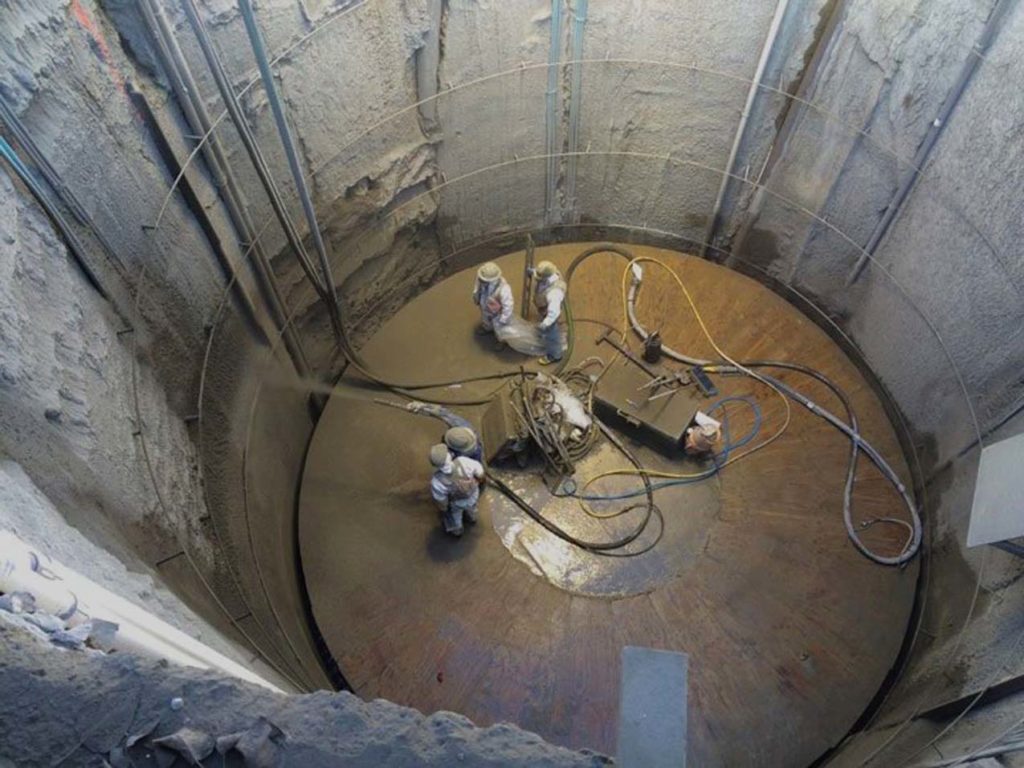By Catarina Kidd, AICP.
JOHN SCHWARZ, an environmental planner for 22 years, is president and principal of JHS Consulting, specializing in environmental planning. He holds an MBA from Santa Clara University and a B.A. in environmental studies from UC Santa Barbara. 
What brought you to environmental planning?
As a student at UC Santa Barbara, I was interested in environmental studies and started taking courses because I loved the variety of topics and their relevance. My approach was about liking the subject rather than trying to figure out the career. After graduating, I landed an entry-level position at David J. Powers and Associates. I then went into the tech world, but missed urban planning and went back to DJP&A.
Tell us about your environmental planning experience.
I was at DJP&A for a total of 19 years, working on public and private development, residential, office, and mixed use. I also did a lot of infrastructure work, including water, sewer, and transportation projects. It was a good mix of projects to round out my knowledge and exposure to different practice areas. I worked my way up to vice president and principal, and was later involved in running the firm, which was terrific experience.
What inspired you to start your own firm?
I wanted to learn the entitlement side and was ready to try something different, and a couple of clients helped me launch the business. I’m working on entitlements and project management for private applicants and contract environmental planning for public agencies — sometimes as an extension of city staff.
Your observations on being a business owner versus employee?
As an employee on the management team at DJP&A, I was stressed about running the business. Now the stress is greater, as it all comes down to just me. It’s fun to be on your own, but not having internal support to get things done can be tough. That’s not a surprise, but it is an ongoing challenge. I’m spending a lot of time figuring out whether to make the business bigger or stay solo and nimble.
How do clients differ?
Applicants always want to get through the process quickly and minimize cost, but the public sector focus is to be accurate and defendable. And schedule is always a priority for both public and private clients. Despite different goals and the contentiousness of the process, I find that everyone wants the job done quickly and well.
Which projects stand out to you?
From 2004 to 2005, the Hitachi/IBM campus in San Jose: It was a coming-of-age project for me. It was big and ambitious, with lots of stakeholders. The applicant team had high expectations, and we had lots of technical issues to iron out. There were moments of having to deliver bad news in the middle of a strong push to the finish line. It was a landmark project in my career.
I’m also passionate about Silicon Valley Clean Water’s Conveyance System going into construction at Redwood Shores. The challenges were aging sewer infrastructure and having to go through residential areas and habitat. From the outset, the alternatives were unpopular with the public and the regulatory agencies. The technical team evaluated a host of other options and came up with tunneling as a feasible solution. After much consideration, SVCW proposed a deep tunnel bore for one of the main project components.

That eliminated many of the environmental impacts, and the opposition vanished. It was easier to run the environmental analysis because we had so much project detail and data. This essential project is now under construction: work has begun to build the shafts for tunneling.
How have you handled client demands at odds with best practices and professional ethics?
I never had a supervisor who cut corners or asked me to do something unethical. If you want to be in this for the long term, you have to be honest. We all get pressured and want to give people an answer they like. I try to understand my clients and what is driving their project. Pressure to do something unsound usually comes from an aggressive schedule. Once bloodied, you realize the bad news won’t go away. Deliver it early and honestly, and present solutions and trade-offs — then the bad news usually is better received. Once you realize that no client is worth ruining your reputation, the difficult conversations become easier.
What are your thoughts on choosing the right consultant?
Sometimes you know only in hindsight that they weren’t a fit for you or the job. Sometimes the lesson is “don’t use them again.” The companies and organizations that often hire the same consultants, do so because they know what they can expect. Predictability is important.
What can cities do to prevent scope changes and the ensuing budget challenges?
One approach is to ask the consultants to show their staffing capacity for the project and to highlight potential budget issues. The interviews should try to determine how flexible the consultants might be. The environmental review process is messy: things change, unforeseen questions come up. Agencies need to build contingencies into the contract and budget, and authorize and allocate changes separately and only when necessary. Consultants and their clients need to acknowledge and document which things have been done and remain open and flexible to reduce the element of surprise.
Any advice for new planners?
Find something that really interests you and think about how you can make a career out of it.
- Learn what you can about the field, then try it out.
- Get an internship if possible, or request an informational interview to get a flavor for the career.
- Talk to folks in that field — just pick up the phone and call.
This can be intimidating when you’re starting out, but even though we are all busy, most of us enjoy those conversations and are happy to help. I was always impressed when someone did that. I may not be hiring, but I probably know someone who is.
Any advice for mid-career planners?
We all struggle with staying inspired. Sometimes the work is a tough grind. Work on something different, with new people, and a new team. Go to industry events, conferences, and lectures to build relationships. I find those to be inspiring: It’s energizing to see a room full of people working on and struggling with the same issues, and it helps you remember you are part of a professional community.
Interviewer Catarina Kidd, AICP, is Northern News’ associate editor. All interviews are edited.
